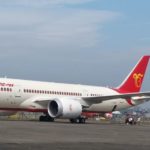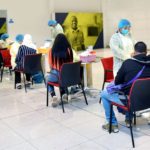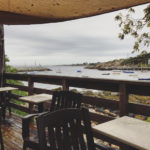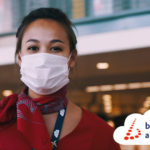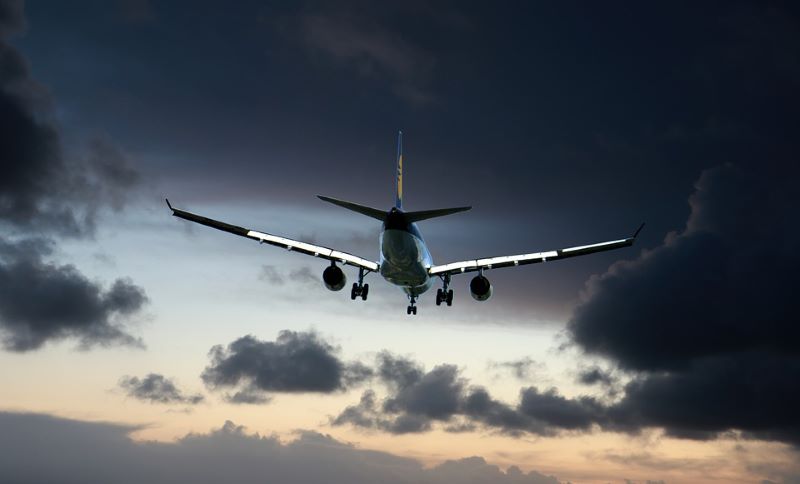
(TAN): Air travel ground to a halt earlier this year with travel restrictions being imposed across the globe and people sheltering at home to curb the spread of COVID-19. Now, as countries begin to reopen their international borders and lift restrictions, travellers are getting ready to return to the skies.
However, air travel has changed quite a bit within the span of a few months. Those busy finalising their travel bookings and planning to fly, will do well to remember that post-COVID air travel will be a different experience altogether.
How airports have changed
Many airports have stated their own measures with regard to the pandemic on their respective websites, so it is easier for the passengers to have a fair idea of what to expect at the airport. Most airports are reportedly advising travellers to wear a face covering, physically distance themselves from those around them, wash hands regularly, and refrain from touching surfaces as much as possible.
[ALSO READ: UNWTO builds key corporate partnerships at UNGC Leaders Summit 2020]
They are reportedly introducing screens at check-in counters, rearranging seats and putting marks on the floor to facilitate physical distancing, and installing hand sanitising stations to ensure safety. Some of the airports are reportedly conducting temperature checks too.
London, United Kingdom’s Gatwick Airport has released a video on its website so that flyers can take a look in advance at the measures that are being followed at the airport. Another British airport, the Manchester Airport, advised travellers to not travel if they are showing symptoms of COVID-19. The airport authorities said although “travelling might feel strange as we get used to these new measures”, they have been put in place for everyone’s safety.
Wearing masks and self-sufficient boarding is being encouraged
While some airlines are reportedly asking customers to scan their own boarding pass, others are encouraging them to check in online.
“If you have checked-in online, your bag tags will be printed for you and you won’t have to touch the kiosk,” Kim Kerr, the Managing Director of customer service for United Airlines at Houston Airport, United States was quoted by abc13 as saying.
Both airports and airlines are stressing on the need to keep faces covered on ground as well as on board the plane. American carrier Delta Air Lines reportedly warned passengers of the costs of not wearing a face covering during flights.
“Those who choose not to comply with this or other safety requirements risk future flight privileges with Delta, which is in keeping with the face covering enforcement policies Airlines for America recently announced,” the airline was quoted by CNN as saying.
United States-based carrier United Airlines too said any passenger who does not comply with the mandatory mask policy will be “placed on an internal travel restriction list”. Additionally, the airline is asking all flyers to complete a “health self-assessment” while checking in.
“As people are returning to their daily activities during the COVID-19 pandemic, their health and safety – as well as the health and safety of others – should continue to be top-of-mind,” Dr. James Merlino, Chief Clinical Transformation Officer at Cleveland Clinic, a nonprofit academic medical centre and a United advisor said.
What to expect on board the flight
The process around getting on and off the plane is likely to take more time now, as the airlines are following a range of rituals in their keenness to maintain physical distancing and hygiene. Some airlines have changed the way passengers board flights – those in the back rows board first now, so they do not have to walk past flyers already seated.
[ALSO READ: Denmark to reopen for most European countries, except Portugal, parts of Sweden]
Also, several carriers are reportedly using a mist machine to spray disinfectant after each flight and are using hospital grade filters to purify the air during the journey.
“Several powerful fans move the air through the HEPA filter and the air is circulated through the aircraft every two to three minutes,” Robert Rasch, an aircraft mechanic for United Airlines was quoted by abc13 as saying.
Airlines are reportedly handing out wellness packs containing hand sanitisers, face masks, and surface wipes. United Kingdom-based airline Virgin Atlantic is planning to supply flyers with such packs, a report said.
Some airlines are reportedly leaving middle seats empty so that flyers are not huddled together on the flight. Others that cannot afford that, are limiting cabin capacity. While Delta is blocking middle and some aisle seats till September, other American carriers such as United, Southwest and American Airlines are reducing cabin capacity. United is reportedly trying to limit capacity at 70%.
Reduced food and drink services mean reduced human contact
Post-COVID air travel has brought with it an overall promise of staying sober in the air. While it may not be desirable for many, it is one policy that several airlines are observing in response to the pandemic.
Airlines all over the world such as Virgin Australia, KLM in Europe, and American Airlines are pausing all or part of their alcoholic drinks service primarily to diminish interaction between crew and passengers, and make air travel safer for everyone, a report said.
Delta is suspending alcoholic drinks on its domestic flights as well as those serving Mexico, Canada, the Caribbean and Central America.
“We’re paring down to essential onboard food and beverage options in an effort to reduce physical touch points between customers and employees,” the airline said.
British Airways is reportedly halting its alcohol service in the short-haul economy; passengers will instead be given complimentary refreshments and a bottle of water. United will serve only “sealed beverages” and “will no longer offer ice, coffee and tea service, and poured alcohol”.
[ALSO READ: COVID-19 could cause US travel spending to sink 45% this year]
Airlines are scaling back on food too – while United and American Airlines are temporarily not serving buy-on-board food, British Airways has suspended special meals, including children’s meals, a report said. Virgin Australia is reportedly serving a snack and water free of charge, although extra food and beverage for on-board purchase is presently not available.
United passengers on domestic flights are being given an “all-in-one snack bag” containing a bottle of water, sanitiser wipes and two snacks. International flyers are being served pre-packed meals.

